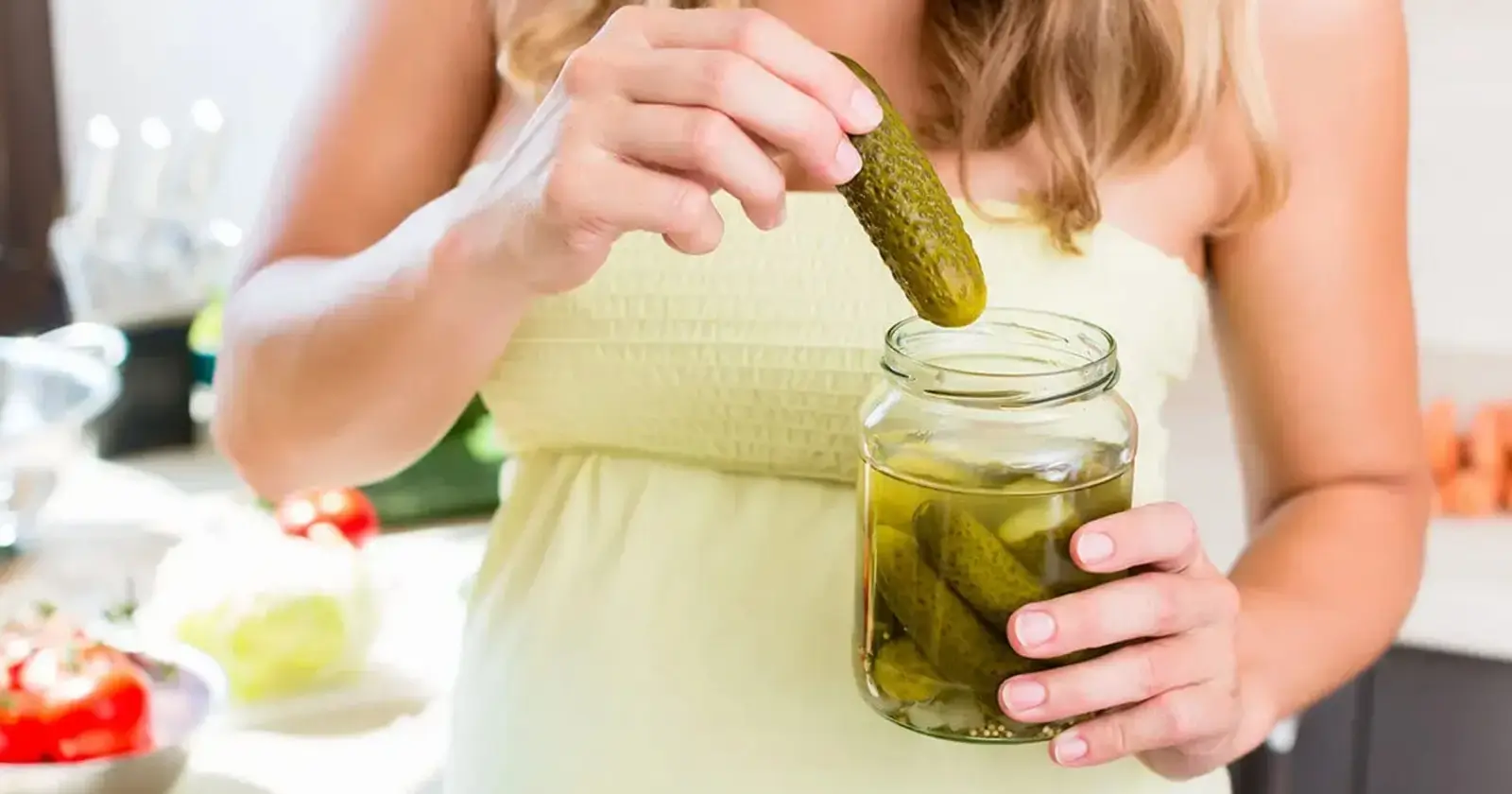You probably know someone who loves everything about pickles! These tangy delights can enhance sandwiches, burgers, and even some salads, adding zest to any meal. According to LiveStrong, pickles are an excellent snack choice for those on a diet since they are low in calories.
The term “pickle” refers to the preservation process using an acidic liquid. Essentially, any fruit or vegetable immersed in an acidic liquid for preservation, like kimchi, qualifies as a ‘pickle’ (per PBS). However, ‘pickle’ is most commonly associated with the tangy, briny cucumbers known for their distinctive bite and crunch.
Pickles can be created through a fermentation process, giving them a sour taste as the cucumber’s chemical composition breaks down. Alternatively, home cooks often use a vinegar and salt solution, as noted by PBS.
These deliciously vibrant veggies are a fantastic snack, but what happens if you indulge in too many?
Increased Sodium Levels
Pickles are celebrated for their sour and salty flavor, but their sodium content can be surprisingly high. According to Health, a single dill pickle spear contains over 300 milligrams of sodium. The Centers for Disease Control and Prevention (CDC) recommends a daily sodium intake limit of 2,300 milligrams for a healthy adult. So, while those salty spears might satisfy your craving, it’s essential to monitor the Nutrition Facts label to avoid exceeding the daily sodium intake recommendation.
It’s well-known that a diet high in salt or sodium can be harmful. Your doctor might even advise reducing your daily salt intake, even if you’re otherwise healthy. Excessive salt in your diet can raise the risk of heart attack, stroke, diabetes, and kidney disease, as noted by WebMD. Consistently high sodium levels can also weaken bones and contribute to high blood pressure.
Gassiness and Bloating
Interestingly, pickles can also lead to mild gastrointestinal discomfort. You might be surprised to learn that pickles can cause gassiness and bloating, but according to LiveStrong, cucumbers are indeed among the foods that cause gassiness in some individuals. Consuming large quantities of pickles can make you feel bloated and gassy.
This is due to a reaction in some individuals to the chemical cucurbitacin, an alkaloid produced by certain plants to protect against disease, according to the Canadian Academy of Sports Nutrition. For some, this alkaloid induces intestinal distress, resulting in gas production that can cause diarrhea, burping, or bloating. While eating one or two pickle spears at lunch might not make you burp the alphabet in your afternoon meeting, consuming too many pickles daily can increase gassiness.
Heartburn
Heartburn can create a burning sensation in your stomach and esophagus. It’s often a result of excessive acid or disagreeable food consumption. Your grandmother or great aunt might have suggested pickle juice as a home remedy for heartburn, but today’s commercially produced pickles may not be suitable.
Pickles rich in healthy gut bacteria may help alleviate heartburn, but most commercially produced pickles are pasteurized, removing both healthy and unhealthy bacteria, according to Healthline. In fact, vinegar-based pickles may worsen symptoms, warns LiveStrong. Heartburn often results from acidic foods, including those made with vinegar.
However, fermented pickles may not trigger this effect. Moreover, if you prefer growing and pickling your own cucumbers, you might find seedless and “burpless” cucumber strains that are said to reduce gastrointestinal discomfort, according to LiveStrong.
Increased Thirst
It’s no secret that salty foods can make you incredibly thirsty. We know this happens with chips and pizza, and pickles are no exception, according to LiveStrong. Whether pickles are fermented or processed in brine, their sodium content can leave you parched. A diet high in pickles can lead to increased thirst due to elevated sodium levels.
LiveStrong explains that the body’s natural response to increased sodium is to flush out fluids to rebalance electrolytes. If you find yourself reaching for water frequently, consider the amount of sodium you’ve recently consumed. Eating a pickle with every meal may increase your thirst.
Health Benefits of Eating Pickles in Moderation
In moderation, adding pickles to your diet can be beneficial. According to WebMD, a whole dill pickle may provide nutrients such as vitamin K, vitamin A, and potassium. Additionally, as pickles are primarily made from cucumbers, they may offer a boost of beta-carotene, a powerful antioxidant.
If you choose fermented pickles, you may benefit from the healthy probiotics often found in fermented foods. These beneficial bacteria aid digestion by breaking down complex carbohydrates, according to the Cleveland Clinic. Pickle juice is also considered a remedy for cramps, notes Healthline. Furthermore, pickle juice is said to help with hangover recovery (per Cleveland Clinic).
So, when choosing a quick and convenient snack, pickles can be a wonderful option! However, ensure you don’t overdo it and stick to the suggested serving size.




